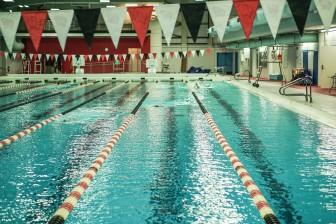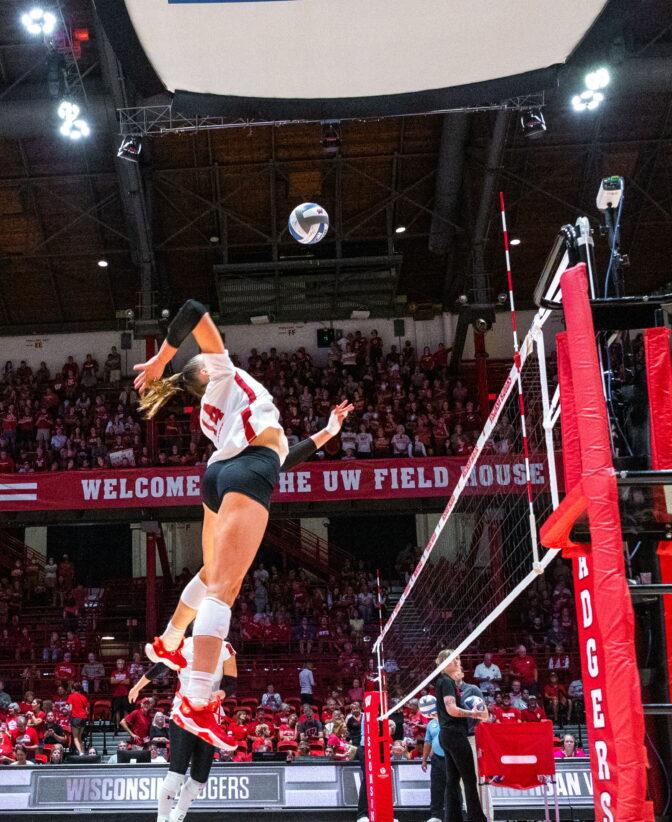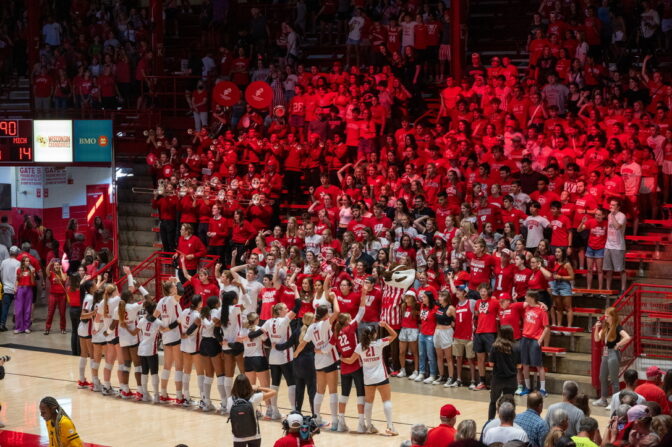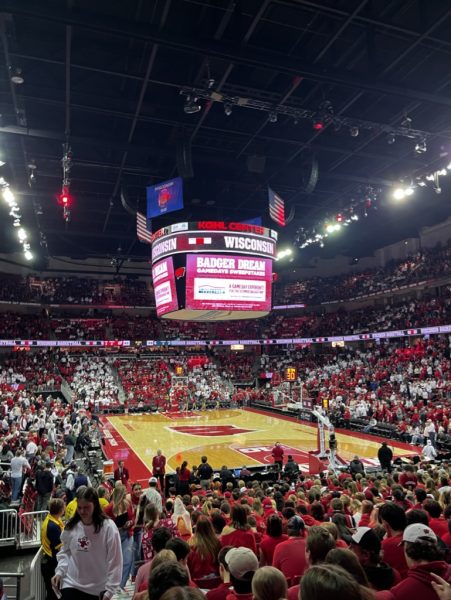The University of Wisconsin held its annual “Day of the Badger” April 16. Running for exactly 1,848 minutes in celebration of UW’s founding in 1848, “Day of the Badger” is a time for giving. Donors can support professors, experiential learning and student scholarships.
“Day of the Badger” raised over $1.7 million this year, with $5,060 of that amount going towards the Women’s Sports Scholarship Fund. UW’s “Day of the Badger” website states that “All gifts raised through this initiative will fund women student-athlete scholarships.”
The benefit of these gifts may not be tangible on the court or playing field, but it’s seen across campus and throughout the Badger community.
Madison has a deep relationship with women’s sports. UW’s own late Edwina Qualls, who coached the women’s basketball team from 1976 to 1986, was a crucial figure in the development of women’s sports on campus.
Together with Kit Saunders, Qualls worked tirelessly to ensure Title IX, the federal civil rights law that prohibits sex-based discrimination and essentially fostered the creation of women’s sport programs, was respected at UW.
Qualls didn’t let inequalities in athletic scholarships, coaching staffs and transportation go unnoticed. While the men’s teams could dish out hefty scholarships, hire fuller staffs, and take planes, not buses, to away games, Qualls filed complaints and made her voice heard.
Gender equality in sports continues to evolve, and today, scholarships and NIL deals add an extra layer of complexity. Though NIL is running rampant in some sports, the longstanding exchange of scholarships for a player’s services is still at the basis of college athletics. The Women’s Sport Scholarship Fund helps ensure Badger women’s athletics can not only function but thrive.
And thrive they have.
Madison’s deep relationship with women’s sports has continued into the 2020s. UW has been home to dominant and still growing volleyball, women’s hockey, women’s soccer, and women’s tennis programs.
The women’s hockey team has won seven NCAA National Championships since 2000. The volleyball program has won its own National Championship amid a stretch of 19 NCAA Tournament appearances.
The women’s soccer team competed in the NCAA Women’s College Cup as a 4-seed after finishing as high as 12th twice during the in-season coaches poll. They came in 19th in the final poll in December.
And, the women’s tennis team is poised to make noise at the NCAA tournament this May. They take on William & Mary May 3 after being named the 33rd best team in the country in official polling.
These teams aren’t the only UW women’s programs enjoying recent success, and team success is far from the only important factor in sports. It’s fun to tag along to watch a team thrive, but it’s important too for Madison to have strong female role models.
This can be true at the individual level, like when someone watches Olympics-bound Phoebe Bacon cruise past her competition in the 200 meter backstroke at the NCAA Women’s Swimming Championships. Observers can strive to be like Bacon, but they can most importantly reap the benefits of athletics should they be inspired to pursue them.
Athletics don’t always become the basis of someone’s life, but they can be a hub in which someone grows, develops, and battles through hardships.
.sno-663f0a6960cbc {
background-color: #ffffff;border: 5px solid #888888;box-shadow: -1px 0 2px 0 rgb(0 0 0 / 12%), 1px 0 2px 0 rgb(0 0 0 / 12%), 0 1px 1px 0 rgb(0 0 0 / 24%);width: calc(100% – 40px); margin: 30px auto !important; float: none;}
.sno-663f0a6960cbc h5 {
color: #000000;
}
Iowa’s Caitlin Clark, now a member of the WNBA’s Indiana Fever, has been making headlines for years. While her stellar play always garnered attention from those packing into stadiums, she also changed the game for TV networks and social media outlets. Clark, the NCAA’s leading scorer in both men’s and women’s D1 basketball, is necessitating TV coverage of women’s basketball games.
Prior to her ascension and draft selection, most WNBA teams would only televise a handful of games. Clark’s Fever are set to televise 36 of their 40 regular season games. For the networks hosting these games, money will follow.
Volleyball, especially in Madison, is learning the same thing. With more than double the televised matches since 2015, college volleyball saw well over a million viewers tune in for Badger games. 1.19 million viewers watched the 2021 NCAA championship between UW and Nebraska, while 1.66 million watched the Badgers host border-rival Minnesota on FOX in October, 2023.
Volleyball doesn’t allow for the same individual superstardom that other sports can, but it’s growing nonetheless. In addition to being home to a prestigious college program, Madison is preparing to house its own professional volleyball team as part of League One in the fall.
Former Badger star Lauren Carlini is returning to Madison to be that team’s “Founding Athlete ” as LOVB tries to make it easier for fans to attach themselves to individual players. The already record participation nationwide in high school volleyball may only grow as the sport develops its professional and college ranks.
Being able to see athletes and aspire to be like them, or at least be able to celebrate an athlete that is like them and understands them, is priceless.
While the Women’s Sports Scholarship Fund does not have a direct impact, it serves an important purpose in women’s athletics. Donations can’t fast-track the growth of women’s sports on campus, but they form the foundation of everything they stand for.
As the official UW twitter stated, the fund “ensures equal opportunities for Badger women in sport and life, now and beyond.” It’s a piece of a larger puzzle.
Women’s sports have come a long way since Qualls was dismissed by UW athletics director Elroy Hirsch, and they’ll continue to grow.



